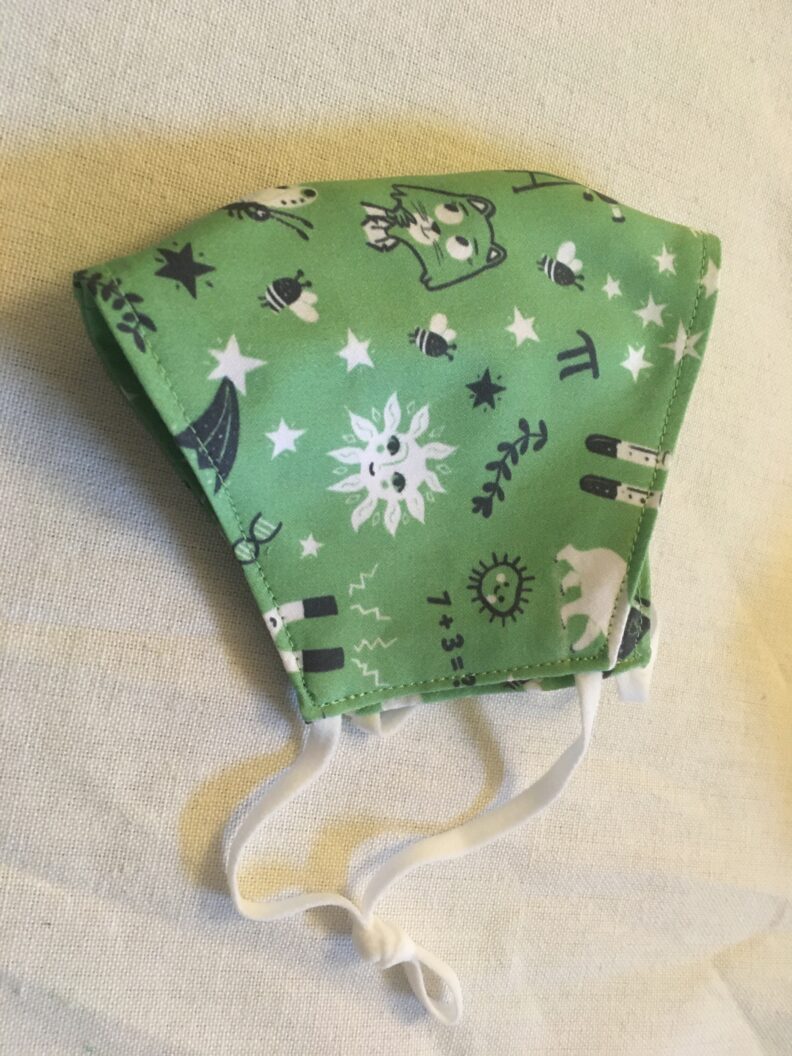Dear Taylor,
When I got your question, I called up my friend and veterinarian Dr. Macarena Sanz who had just finished checking up on the horses at the Washington State University Teaching Hospital. She was happy to help.
“It’s a hard question to assess scientifically,” Sanz said. “But I think everybody who has worked with horses can tell you that horses really do have a certain sense about humans.”
One part of the answer to your question is that horses may be able to respond to a situation using clues from both a person’s facial expression and the emotion in their voice.
In a study from Japan, researchers showed horses some photos of humans with different expressions on their faces, such as happiness or sadness. Along with the photos, the horses also listened to recordings of human voices.
 Sometimes the voice and facial expression matched, for example, a happy face with a happy voice. But other times the horse might have seen a photo of a happy expression but heard a sad voice.
Sometimes the voice and facial expression matched, for example, a happy face with a happy voice. But other times the horse might have seen a photo of a happy expression but heard a sad voice.
“Horses were able to pick on that,” Sanz said. “When the horse didn’t feel like things matched, they would stare at the screen a lot longer.
It kind of makes you wonder what exactly the horses must have been thinking. These kinds of studies will help researchers start to put together a better picture of how horses respond to humans.
You know, your question also made me curious about the ways humans figure out what horses are feeling. It turns out that horses have 17 expressions they can use to communicate, such as puckering their lips or dropping their jaw. Some expressions communicate they are in pain.
If you’ve ever stubbed your toe or broken a bone, maybe you know that feeling that makes you scrunch up your face in pain. That’s a kind of expression called a grimace.
Sanz said veterinarians use a scale called a grimace scale, which includes photos and information about different horse expressions and behaviors, like when they hold back their ears. It’s a tool many veterinarians who work with horses will use in their careers.
“I remember when I was starting my career, my boss would come in and say, ‘Oh, this horse has –that look–and it’s going to need surgery’ and she was right. The horse needed the surgery. And now I can see that look too,” she said.
While humans and horses have been a part of each other’s lives for thousands of years, there is still a lot to learn. Sanz said it’s likely we will continue to learn even more about the way humans and horses interact, especially as many studies have been showing that these interactions can have lots of health benefits.
Perhaps one day you’ll be a veterinarian who helps us provide the best care for horses or a researcher who helps us better understand the ways in which horses sense the world.
Sincerely,
Dr. Universe

Grown-ups! You can help Ask Dr. Universe change the world, one science question at a time.
Learn about the Dr. Universe Fund at Washington State University and how to get your own STEM-inspired face mask here: askDrUniverse.wsu.edu/masks